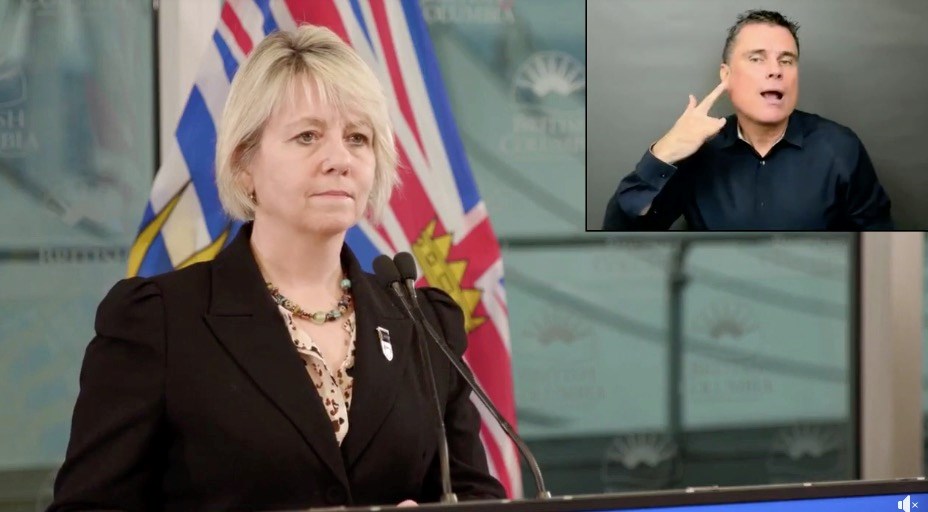Whistler had 547 cases of COVID-19 from Jan. 1 to Feb. 2, Health Minister Adrian Dix revealed during a press conference on Friday, Feb. 5, primarily focused on sharing the province’s epidemiological modelling.
“The majority of cases in Whistler continue to be identified in young people in their 20s and 30s who live, work, and socialize together,” Dix said.
Only two cases in the resort required short stays in the hospital and none have resulted in deaths.
“Almost all the recent cases that are associated with transmission [occurred] within households and social settings, according to our contact tracing,” he added.
Dix also said “significant enforcement” is taking place in Whistler and praised the efforts of Whistler Mayor Jack Crompton.
“Dr. Henry and I spent time and were working with the mayor of Whistler, Jack Crompton, who’s played an extraordinary leadership role … I want to acknowledge his work.”
Dix also alluded to a “full action plan” that the Ministry of Tourism is expected to release next week to reduce transmission at ski hills across the province.
“We want to take those actions and focus in on the source of transmission and limit transmission and not have to take broader action with respect to the entire industry,” he said.
That said, Dix reiterated that transmission appears to be coming from social settings. Last weekend, WorkSafeBC conducted 61 inspections in Whistler and “a couple dozen” inspections from environmental health officers.
“It’s not skiing on the mountain that’s been the principal source of transmission,” he said. “We’ll continue increasing [inspections]—and I think you’ll see an increase in communications, more details of the plan, both from the industry, involving health authorities, but also the Ministry of Tourism—to target transmission in the coming weeks. I think it’s very important we do that because no one wants to take broader action that would curtail the season.”
“But we need to take action now … That’s way, way, way too many cases.”
Who can visit Whistler?
Provincial Health Officer Dr. Bonnie Henry, meanwhile, further clarified somewhat confusing messaging in recent weeks about who is allowed to travel to Whistler to ski.
“The other thing that we’ve been saying for some time now is stay local. For Whistler, that means day trips only. Right now is not the time to go up there and party. And that is important because the community needs to be protected from us and we need—if we’re going up to Whistler—not to … bring the virus back with us to our communities,” she said.
But, she added, ensure you’re using the Whistler Blackcomb reservation system before you visit. “They need to check ahead to make sure that there is space on the mountain. That’s been another issue that we’ve heard has been a concern.”
Stay tuned for news on ski passes
It appears news will also be coming next week to address the issue of non-locals who purchased Whistler Blackcomb season passes and are nervous about coming up with such high numbers in the resort—or have been adhering to travel restrictions to stay local.
Henry said an “industry group” has been working on a plan. “That is one of the concerns that has been brought to their attention,” she said.
Again, she added, skiing with your household bubble is not considered a risk.
“It’s the befores and afters and the parties and the getting together and the social gatherings,” she says. “Those have never been acceptable and that is where we’re seeing transmission happening in several communities. That’s why it’s so important to visit, not vacation.”




